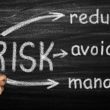Is your agency’s procurement team sidelined during the infrastructure procurement process?
Early in my professional career as an agency CPO, I was asked if my team played a role in infrastructure projects. I did not know how to answer that question, so I investigated. I found that despite our centralized procurement setup, infrastructure projects—from preparing solicitations to awarding—were handled in a siloed environment by a separate capital projects group.
One of the first things I realized when performing my research was that the procurement process for infrastructure projects was not anywhere close to the standard procurement process for your typical goods and services.
I knew that the development and structure of sound procurement practices for infrastructure projects would support our agency in achieving sustainable, innovative, and high-quality infrastructure that our entire agency could be proud of.
I am a big believer in centralized procurement and quickly began discussing with key internal stakeholders the importance of procurement taking on a pivotal role in the process.
Bringing infrastructure under the central procurement umbrella
It was not easy getting our major internal stakeholders (capital project team, counsel, risk management, etc.) to make changes to a practice that had been in place for more than 30 years. I found that in order to be successful with these stakeholders, I needed to be prepared with supporting data that would show them how critical it was to include procurement in the infrastructure project process as early as possible.
Critical datapoints included a list of current open infrastructure projects, which include the project start date, the original awarded contract amount and any additional change orders or project increases. I made sure to identify and compile the reasons for those change orders or increases. I also included information identifying project components that could have been awarded through either an approved job-order-contracting process (not related to new construction) or cooperative agreements that could have been used for the procurement of goods related to the project.
Today, tools like Procurated can be used to investigate suppliers involved in infrastructure, and look into whether they have a track record of success. If they don’t, such a tool can also be used to identify competitors that could save the agency time and money.
Speaking directly to efficiency and the agency’s bottom line was critical in proving the worth of central procurement’s knowledge and best practices.
I made clear that central procurement operations requires that we all work together and that doing so is worthwhile. Through transparency, open competition and fairness, our agency and those that we represent (taxpayers) would end up with a more fiscally sound project, one that does not compromise on quality, longevity and sustainability requirements.
Leading with collaboration, innovation and data
Our procurement team was able to bring an innovative approach and perspective to our agency’s infrastructure projects, improving on an outdated process and saving agency dollars. We were also able to develop a process that would look at a project and calculate the total cost of ownership (TCO) throughout the project’s lifecycle. This TCO process would consider such things as potential financing, planning, design, construction, operating and, if relevant, decommissioning costs.
Additionally, by taking the time to develop a well thought out and inclusive strategic infrastructure procurement process, we would be supporting the agency in implementing an open and transparent process, and one that is both inclusive and responsive to the ever-changing supply chain environment.
The implementation of any successful new program can be challenging and is destined to struggle without the full support of the impacted stakeholders. Getting the early support of key stakeholders is critical to your success. Be ready to identify and discuss with them their roles and responsibilities in the process. The better informed they are, the more success your agency will have. Make sure that you let the stakeholders know that they are the owners—the equity holders—as this will surely drive their motivation to participate and ensure that your program is successful and accepted.
I will leave you with something I was once told by an incredibly wise person—to ensure success, no matter what that success is, “acceptance” is the key to any successful endeavor.
Mike Derr joined Procurated as a community engagement manager in 2021 and is excited to bring to the team his 25 plus years of experience and wealth of knowledge in supporting the needs of our clientele.
This article originally appeared in the Q1 2023 issue of Government Procurement.




















